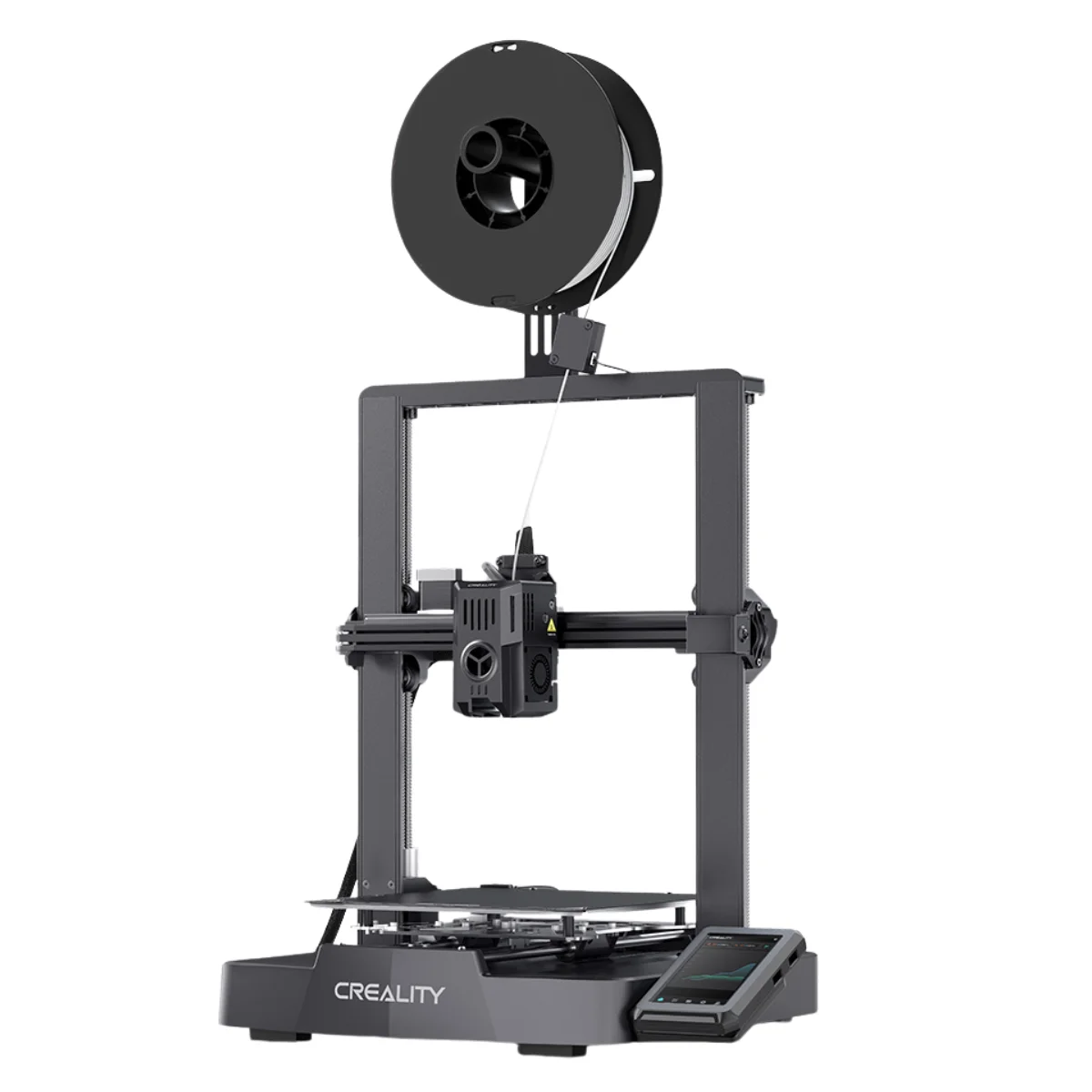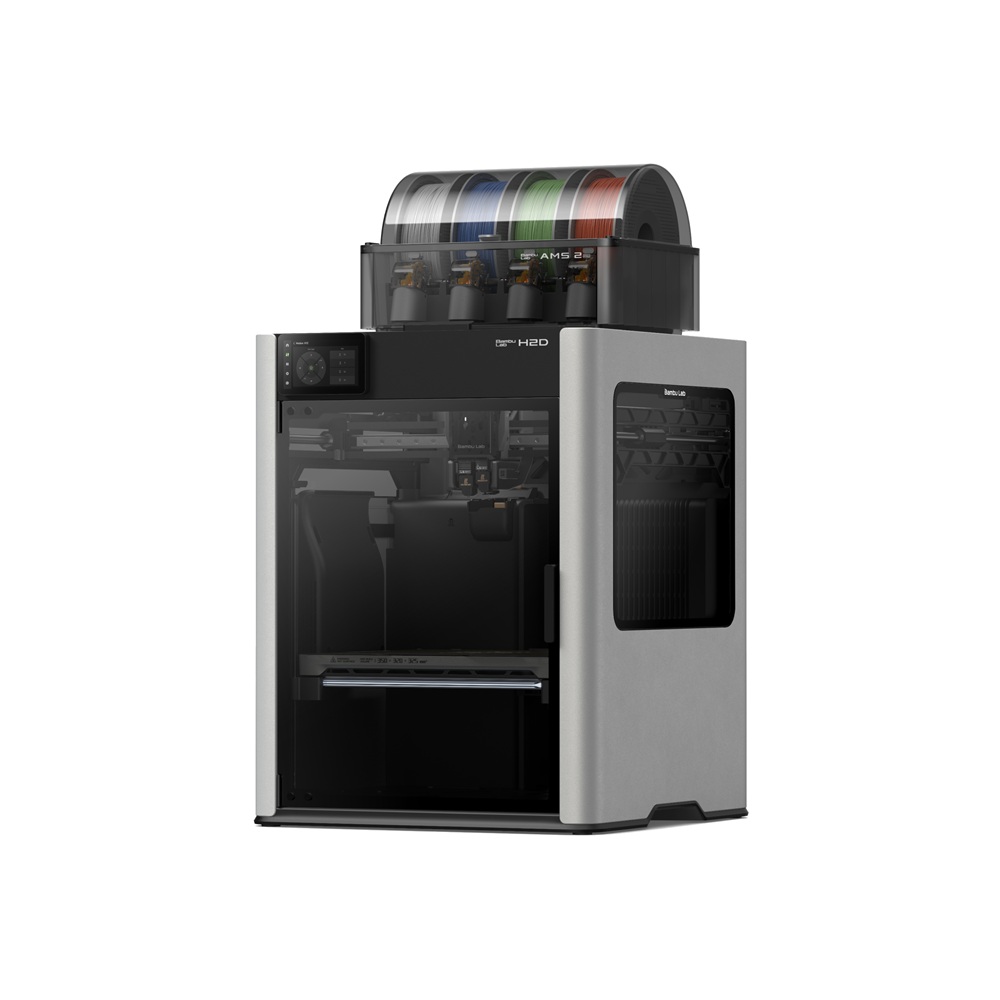Compare Ender 3 V3 KE vs H2D
Comparison between the best 3D printers
Choose the best 3D printer at the best price. The cheapest 3D printers are here.
Buy a 3D printer here with 3D Fila.
 |
 |
|
| Model | Ender 3 V3 KE[BUY Ender 3 V3 KE] |
H2D |
| Printing Material | Filament | Filament |
| Buy Filament for Creality Ender 3 V3 KE | Buy Filament forBambu Lab H2D | |
| Estimated price | $279,00 | $1899,00 |
| Manufacturer | Creality | Bambu Lab |
| Release Year | 2023 | 2025 |
| Print Volume [mm] | 220x220x240 | 350x320x325 |
| Printer Size [mm] | 433x366x490 | 492x514x626 |
| Weight [kg] | 7,8 | 42,3 |
| Power Loss Recovery | YES | YES |
| Enclosed printer | NO | YES |
| Bed Leveling | Automatic | Automatic |
| Filament End Sensor | YES | YES |
| Bed type | Heated | Heated |
| Power supply system | Direct Drive | Direct Drive |
| Standard nozzle | 0,4 | 0,4 |
| Maximum Nozzle Temperature [°C] | 300 | 350 |
| Maximum Bed Temperature [°C] | 100 | 120 |
| Maximum printing speed [mm/s] | 500 | 600 |
| Filament holder | YES | YES |
| Camera for supervision | NO | NO |
| Recommended filaments | PLA, PETG e TPU (95A+), ASA | PLA, PETG, ABS, ASA, TPU, PVA, Nylon (PA) |
| Recommended slicers | Creality Print, Cura 5.0 ou superior, Prusa Slicer, Orca | Bambu Studio |
| Maximum Resolution [mm] | 0,1 | 0,01 |
| Processor | 32-bit Silenciosa | |
| Display | Touchscreen 4,3'' | Touchscreen 5'' |
| Power Supply | 350 W | |
| Connectivity | USB drive, LAN, Creality Cloud APP | Wifi, Bambu bus, Cartão SD |
| Operating systems | Windows, Linux, Macbook | Windows, Mac, Linux |
| Date of registration in the system | 2024-03-06 | 2025-03-31 |
| Release date | 2023 | 2025 |
| Extra features | The Ender 3 V3 KE, an advancement in the Ender line, achieves print speeds of up to 500mm/s with its touchscreen and WiFi connectivity. Although it has a slightly smaller print area than the SE model, it makes up for it with superior print quality. Its robust design, high-quality components, and intuitive wireless control are appreciated, although Creality's mobile app lacks practicality and does not have a closed system. It stands out for its linear track on the X-axis for stability at high speeds and the hotend that supports up to 300°C, ideal for high-temperature filaments. | Bambu Labs H2D combines high-speed 3D printing with a chamber heated up to 65 °C, dual extrusion with automatic nozzle switching, an AMS for filament drying and exchange, and AI sensors that detect failures. It offers optional laser and digital cutting capabilities, features intelligent calibration through computer vision, vibration control, enhanced fire safety, and real-time camera monitoring. |
| Support for multiple colors and materials (AMS and CFS) | NO | YES |
Notes * |
||
| Cost-benefit | 7 / 10 | 7 / 10 |
| Hardware | 2.8 / 10 | 7.2 / 10 |
| Tela | . | . |
| Print volume | 3 / 10 | 4 / 10 |
| Performance | 4 / 10 | 5 / 10 |
| [BUY Ender 3 V3 KE] |
Conclusion |
| In conclusion, the comparison between the Creality Ender 3 V3 KE and the Bambu Lab H2D illustrates two distinct 3D printers tailored to different user needs and budgets. The Ender 3 V3 KE is an entry-level printer with a lower price point, making it accessible for hobbyists and those new to 3D printing. It offers solid performance for basic materials and a good set of features, including automatic bed leveling and a decent maximum printing speed. On the other hand, the Bambu Lab H2D is positioned as a premium option, equipped with advanced features such as dual extrusion and intelligent calibration, making it suitable for professionals and enthusiasts who require high versatility and performance. Its larger print volume and enhanced capabilities for various materials justify the higher investment. Ultimately, potential buyers should consider their specific requirements, including budget constraints, desired print complexity, and the range of materials used, before making a decision. While both printers have their strengths, they cater to different segments of the 3D printing market, ensuring users can find a model that fits their needs perfectly. |

